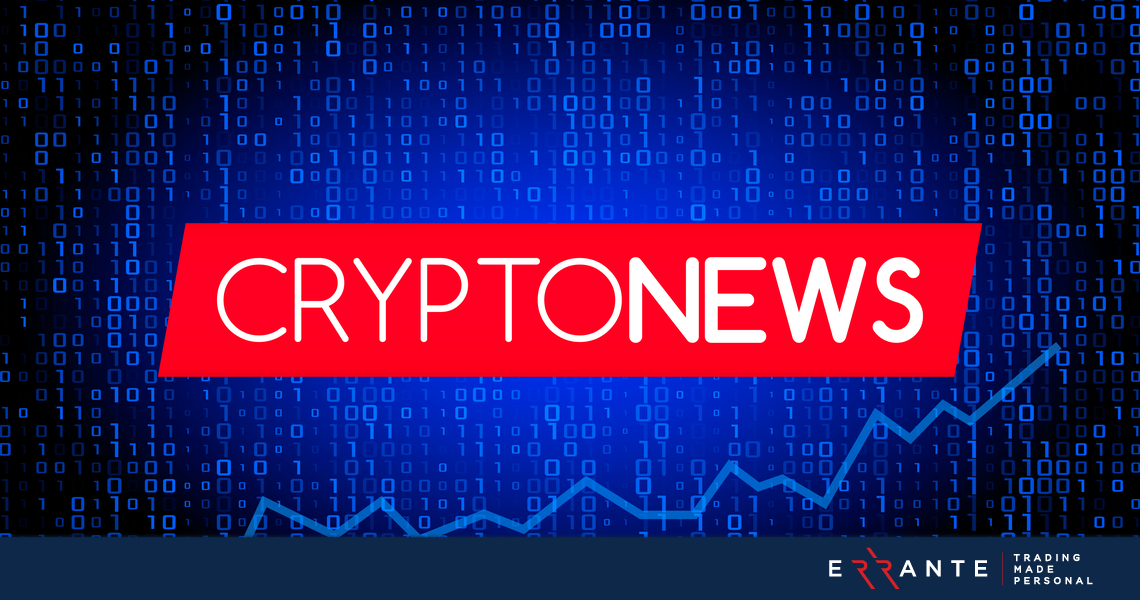Special copyright News: Insights into the Future of Digital Currencies
Special copyright News: Insights into the Future of Digital Currencies
Blog Article
A Detailed Overview of one of the most Significant Stories and Insights From the Digital Currencies Field
The electronic currencies sector has actually undertaken transformative modifications that necessitate a closer exam of its most significant stories. From increased governing procedures focused on making certain compliance to groundbreaking technological advancements that boost the efficiency of purchases, the landscape is swiftly developing. Additionally, the surge of decentralized finance and the raising acceptance of cryptocurrencies by mainstream companies present interesting dynamics. As we discover these advancements, it becomes necessary to think about not just the existing state of the market but likewise the ramifications for its future trajectory. What exists ahead in this ever-shifting sector?
Regulatory Advancements in Digital Currencies
The landscape of digital money is significantly shaped by regulative growths as federal governments and monetary authorities look for to develop structures that stabilize advancement with consumer protection and financial stability - copyright news. In the last few years, international regulatory authorities have actually intensified their analysis of electronic currencies, resolving worries associated with money laundering, scams, and market volatility
Countries such as the United States and members of the European Union have recommended or passed regulations targeted at developing clear guidelines for copyright procedures. These policies typically need exchanges to carry out Know Your Customer (KYC) policies and stick to anti-money laundering (AML) protocols. Nations like China have taken a more limiting technique, straight-out prohibiting copyright trading and First Coin Offerings (ICOs)
The development of Central Bank Digital Currencies (CBDCs) even more complicates the regulatory landscape, as nations check out government-backed electronic currencies as a method to boost economic incorporation and improve deals. As regulators around the world work to create coherent plans, the electronic currency market should browse these progressing laws to promote development while guaranteeing robust consumer defenses and systemic stability. In general, ongoing regulatory developments will dramatically affect the future trajectory of digital currencies and their integration into the global economic system.
Technological Developments Forming the Field
Technological developments are fundamentally changing the digital currency industry, driving advancements in safety, scalability, and purchase effectiveness. Among the most significant innovations is the implementation of blockchain technology, which gives a decentralized journal that improves openness and lowers the threat of fraud. copyright news. This innovation permits secure peer-to-peer transactions without the need for intermediaries, thus streamlining procedures and lowering costs
Additionally, the rise of Layer 2 services, such as the Lightning Network for Bitcoin and different Ethereum scaling solutions, has actually significantly boosted purchase throughput. These technologies enable faster and cheaper purchases, addressing the scalability issues that have pestered numerous blockchain networks.
Smart contracts have additionally become an essential technology, automating processes and reducing the need for hands-on treatment. These self-executing contracts promote trustless agreements, therefore enhancing the general efficiency of electronic purchases.
Furthermore, developments in cryptographic strategies, such as zero-knowledge evidence, are their website boosting personal privacy while keeping conformity with regulative criteria. Jointly, these technical developments not only boost the facilities of digital currencies but likewise pave the way for wider adoption and integration into the international financial system.
Rise of Decentralized Finance

Within this structure, various applications have arised, including decentralized exchanges (DEXs), offering systems, and yield farming methods. These systems enable customers to trade assets, obtain, and lend without relying on conventional banks, therefore enhancing financial incorporation. In addition, wise agreements play a critical function in automating transactions and implementing arrangements, which decreases the threat of counterparty defaults.
The DeFi landscape has seen exponential growth, with total value secured DeFi methods getting to billions of bucks. This surge reflects expanding interest from both retail and institutional capitalists seeking options to traditional monetary items. However, the increase of DeFi additionally raises questions concerning regulatory conformity, safety vulnerabilities, and market volatility.
As the DeFi field develops, it provides an opportunity for innovation while additionally challenging existing financial norms, possibly reshaping the future of global financing for years to come.
Mainstream Adoption of Cryptocurrencies
Increasing interest in cryptocurrencies has propelled them right into mainstream economic discussion, with many people and organizations recognizing their potential as feasible assets and circulating media. The raising acceptance of digital money has actually been evidenced by their integration into various markets, consisting of retail, financing, and modern technology. Major firms such as Tesla and PayPal have actually started to accept cryptocurrencies as payment, more legitimizing their usage in daily deals.

As regulatory structures evolve, they are providing a more clear pathway for cryptocurrencies to coexist with standard financial systems. This regulatory quality is important for cultivating Recommended Reading trust fund and motivating additional financial investment in digital assets. In addition, the increase of straightforward systems has streamlined accessibility for the average customer, promoting more comprehensive involvement in the copyright economy.
Future Trends and Predictions
Looking in advance, the have a peek at this site future of electronic money is positioned for substantial advancement driven by innovations in modern technology and adjustments in market dynamics. As blockchain technology continues to develop, we are likely to see boosted scalability and interoperability among various digital currencies, cultivating a more cohesive ecological community. This technological progress will enable much faster transaction rates and lower prices, making digital money more attractive for daily use.
In addition, regulatory frameworks are anticipated to become extra defined, providing clearer standards for businesses and financiers. This governing clearness will likely motivate institutional adoption, as financial entities seek to incorporate electronic currencies into their operations. The surge of reserve bank electronic currencies (CBDCs) will likewise improve the landscape, as governments check out means to digitize their financial systems while guaranteeing stability and safety and security.
Additionally, the assimilation of artificial knowledge and machine understanding in trading and investment approaches will boost market analysis and decision-making procedures. As digital money remain to obtain traction, customer education will certainly play a vital role, encouraging people to browse this complex atmosphere successfully. On the whole, the trajectory of electronic money suggests a transformative phase, characterized by development, law, and broader approval.
Conclusion

Report this page